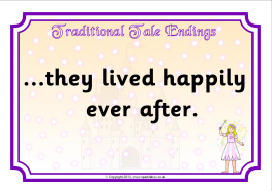Write to the End
Every story needs a good ending. And no more is that true than for the short story I have been working on this semester. Following techniques suggested by my tutor, I have developed a very organic work, the first draft not really having a clear direction, but just being whatever came to mind at the moment of writing. As it happens, and despite having little to interest in science fiction, my story is set in a distant, dark dystopian future. There’s bucket loads of drama & suspense. And the protagonist is a physically strong, female lead. (OK, OK perhaps I know the tiniest, little bit about that role!)
I gained a lot from both my tutor and classmates in the form of feedback, and the second draft (part 1 and part 2) shaped up nicely what with a stronger plot and character-building. Now, I turn to the thing I began to fear from the very start of this mini-project: writing the end.
Traditional Endings
If I were to think about what a traditional ending entails, I would say that it ties up all the loose ends of a story, it answers all the questions posed during the tale, and it leaves the reader with a feeling of satisfaction. The most traditional of endings, perhaps, belong to the six Aristotelian elements of a play, whereby ‘character’s provide the motivations (reasons) for the events of the plot’ and the plot itself is composed of ‘clearly defined problems for characters to solve.’ But should every story end with a nice, clean resolution? That almost seems boring and pedantic, when there are so many other options out there. And my tutor was on hand with a suggestion to read some of Anton Chekov’s short stories in search of ‘subversive endings’.
Subversive Endings
According to Jauss, Chekhov‘s strongest ending theme is one of ‘returning his characters to life‘, dealing with a change, or indeed, the failure to change. It is one where, having zoomed in for a closer inspection of a character’s life for a short story, we zoom back out and leave the character as he or she was, without necessarily answering all of the questions that may have surfaced during the story. This may sound lazy to some, that it does not require much thought to leave the character as is. However, I believe it requires just a deft a touch in order to set up a more subversive ending.
Indeed, Chekhov, being ‘deeply skeptical about the possibility of change, especially if that change were permanent and positive…’, was highly skilled in presenting endings that surprise or confuse our expectations. Similarly, I hope to take inspiration from Chekhov’s subversive endings, and create something that make us think more profoundly about life’s dilemmas.
And on this note, I delve deeper into Chekhov’s ‘subversive endings’ …all suggestions for endings also welcome!


Very interesting insight. It’s so true, a non-traditional ending is much more difficult to write. A writing teacher once told me, “if you find it easy, you are not doing it right.”
I am very surprised you didn’t like science fiction!!! I think you might change your mind after writing your story. What an amazing journey!
I look forward to reading your final draft.